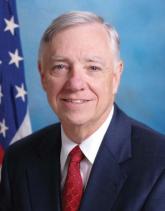News

The Department of Health & Human Services says it is giving some $110 million to health care organizations that have come up with innovative ways to deliver high-quality care at lower cost.
The federal grants will last for 3 years and are part of the Health Care Innovation Awards program created by the Affordable Care Act and administered by the innovation center at the Centers for Medicare & Medicaid Services.
Last May, the department announced that it was seeking applicants for as much as $1 billion in federal money for the projects.
In addition to the $110 million awarded to 12 health care organizations, the agency is making $730 million available to states seeking to "design and test improvements to their public and private health care payment and delivery systems," according to a Health & Human Services (HHS) department press release. That money has not yet been awarded.
The 12 current recipients of the Health Care Innovation Awards, profiled here, are the Altarum Institute; American College of Cardiology Foundation; Association of American Medical Colleges; Avera Health; Children’s Home Society of Florida; Clifford W. Beers Guidance Clinic; Four Seasons Compassion for Life; Icahn School of Medicine at Mount Sinai; New York City Health and Hospitals Corporation; North Shore LIJ Health System; Regents of the University of California, San Francisco; and Regents of the University of Michigan.
Additional recipients will be announced in the coming months.
Projects funded include ways to provide better care for dementia patients, to improve coordination between specialists and primary care physicians, and to ensure that children in Medicaid and the Children’s Health Insurance Program get more rapid attention to dental problems.
The American College of Cardiology Foundation received one of the biggest grants – $15.8 million – for its project, called SMARTCare. The project will use a combination of clinical decision support, shared decision-making, patient engagement, and provider feedback tools designed to improve care for stable ischemic heart disease. Among the goals: a reduction of imaging procedures not meeting appropriate use criteria; a reduction in the percentage of percutaneous coronary interventions not meeting appropriate use criteria while achieving high levels of patient engagement and lower rates of complications; and an increase in the percentage of stable ischemic heart disease patients with optimal risk factor modification.
The ACC will test SMARTCare at five sites in Wisconsin and five sites in Florida. It was developed by cardiologists who belong to those states’ ACC chapters, along with other physicians at health systems and in primary care, payers and insurers, employer health coalitions, patient advisers, and payment reform advisers.
The SMARTCare goals are big, "but we have the right people at the table to make them a reality," said Dr. Thomas Lewandowski, SMARTCare project director and immediate past governor of the ACC’s Wisconsin Chapter, in a statement.
"We believe involving patients in an evidence-based decision-making process is the best way to improve outcomes while providing the highest value for the health care dollar," said ACC President Patrick T. O’Gara, in the statement. "This grant will give us an opportunity to demonstrate how data from clinical registries can be leveraged to enhance physician/patient communication," he said.
The biggest award, about $18 million, went to the New York City Health and Hospitals Corporation, to test out an Emergency Department Care Management model. Six hospitals will expand upon a pilot program that uses multidisciplinary teams to assess ED patients; create a care plan to avoid unnecessary hospitalization; and provide ongoing support after discharge, including medication management, education, and linkages with primary care providers.
The agency says there was great interest in the latest round of awards, but it could not say how many organizations had applied. For the first round, in which awards were given out in 2012, there were 3,000 applicants, and 107 winners.
The Center for Medicare & Medicaid Innovation (CMMI) has the authority to expand any program nationally if it looks like it is producing savings.
HHS also is making $730 million available under the State Innovation Models Initiative to states that apply for the funds.
"As a former governor, I understand the real sense of urgency states and local communities feel to improve the health of their populations while also reducing health care costs, and it’s critical that the many elements of health care in each state – including Medicaid, public health, and workforce training – work together," said HHS Secretary Kathleen Sebelius in a statement. "To help, HHS will continue to encourage and assist them in their efforts to transform health care."

